Movies
Women Talking: Shattering the walls of mental captivity
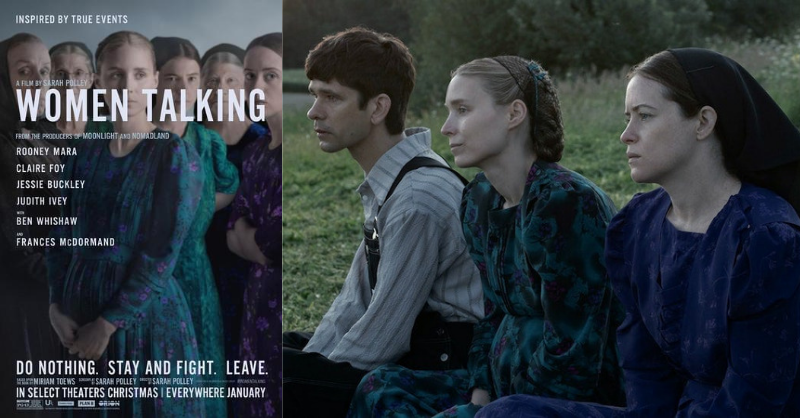
Emerged from the excellent story telling of Sarah Polley, Women Talking is a horrifying yet hopeful story of how women fight the atrocities with their voice.
The wisdom of Sarah Polley never fails to find space to tell strong women stories through her work and “Women Talking” is one such piece that contemplates the idea of revenge and forgiveness. Set in 2010, the movie revolves around the residents of a cultlike religious community. There is more to this place than soy fields, dirt roads, and rustic houses. Women Talking is a story of how the victims of atrocities use their voice to take action and protect themselves against exploitation and injustice. It is both horrifying and hopeful, infuriating and inspiring and sometimes, it is all at once. Emerged and adapted from a novel written by Sarah Polley from Miriam Toews, this movie talks about hope even in the worst situations.
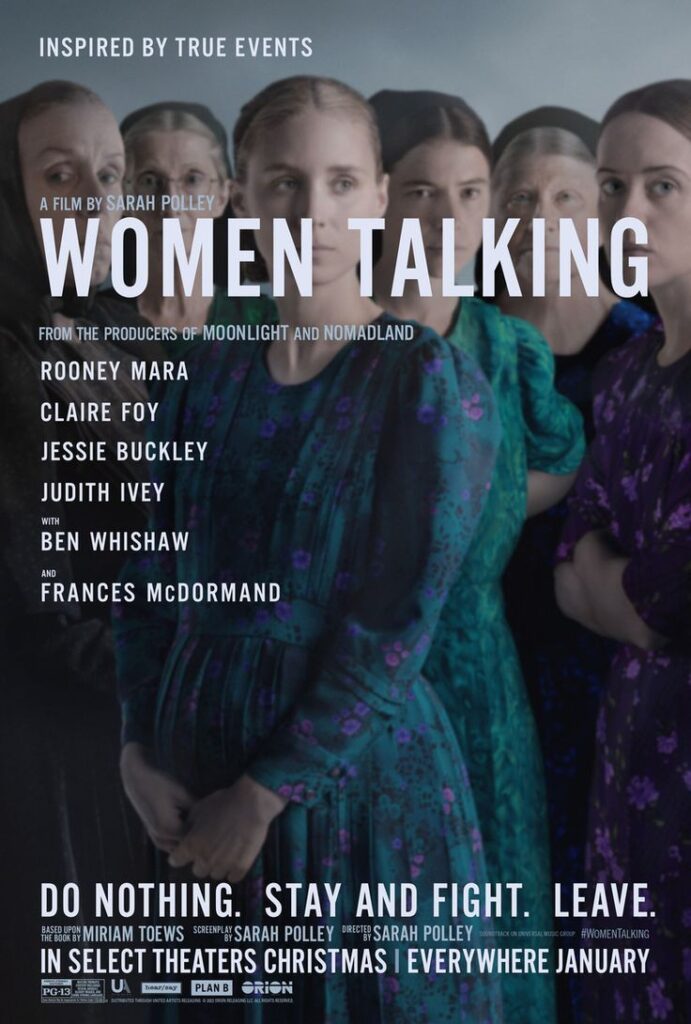
The Plot
Men and women have separate spaces to live in the colony. While men here have been granted privileges like formal education, women are kept uneducated. With men of the community having all the practical, physical and tyrannical power, women find themselves in a very inferior position. The tension in the story starts when women of the colony find out that they are being assaulted by the men of the colony. Many men used cow tranquilizers to make them unconscious and rape them. There’s a quote in the film that goes “Where I come from, where your mother comes from, we don’t talk about our bodies” which signifies that sometimes women weren’t aware of what was happening with them and they were told that it is the work of supernatural demons or it’s just the product of one’s delusions and imaginations. Sometimes women are accused of lying. This goes on for years until a man rapes a toddler but her mother discovers and attacks him. To ensure his safety, the colony men take the man to a nearby city where he was arrested. While the men were away, the women of the colony gathered to discuss their next step as they won’t let these assaults continue. They decided to take the decision through voting. They had three option, Do nothing, stay and fight or leave.
“We had two days to forgive the attackers before they returned. We hardly knew how to read or write but that day, we learned to vote”.-Autje
The tension
These women had two options, to accept the oppression or a revolutionary carnage. Some elderly of the community were in favor of forgiving men as that is believed to open the gates of heaven for them. There is not much element of suspense but to be honest, it doesn’t matter. What matters are the discussions that lead to the conclusion. The film happens between those utterly dramatic, intellectually absorbing, and emotionally gripping debates between women. Most of the decision making debates happen between the women of three families. One such important character that we got to see amidst these discussions was August who has received a secular education outside the colony and now works as a teacher for boys of the community. He takes minutes of the conversation that these women have and adds an extra angle to it.
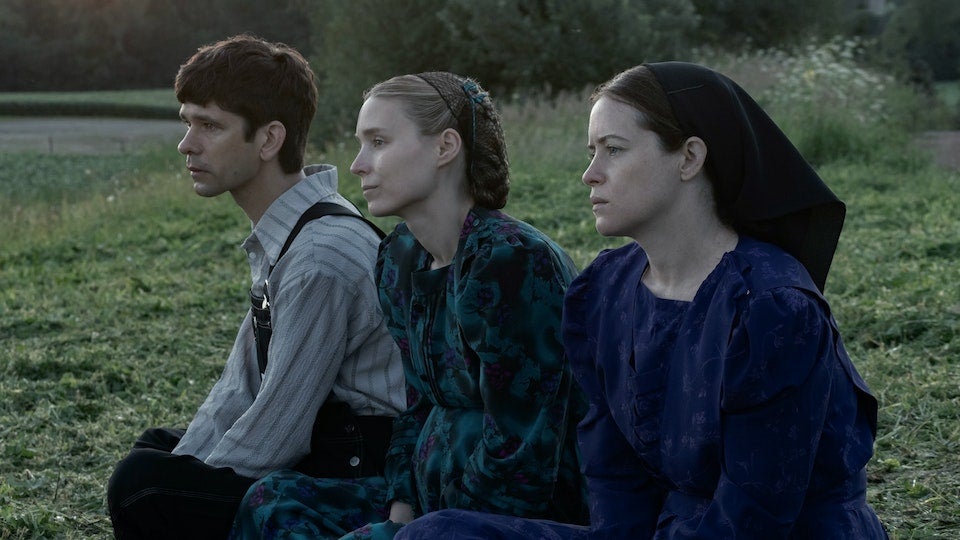
“It is a part of our faith to forgive. We have always forgiven those who have wronged us. So why not now?” – Scarface Janz
The drama is centered around these conversations which subtly show women’s long-suppressed wisdom, self-consciousness and willingness to change the norms. It’s a film which happens with speech and in between speeches and it all fits in place, thanks to the powerful writing of the dialogues and scenes because honestly, they are the essence of this whole story amplified with the performances of the actors. Nothing else happens in the movie other than women talking and it is a movie that is exemplary in its imaginative and distinctive approach. They discussed the morality of violence, the male nature, meaning of forgiveness and the responsibility of the men who weren’t from the attackers. They also discuss if all men are responsible for these happenings and if they all are to be treated equally responsible? It also explores “what is the meaning of forgiveness”. There is a difference between forgiveness that is often taken as “permission to continue the act” and forgiveness that is unforced and comes from within. They even questioned the system that doesn’t allow them to read and learn. While these discussions seem very progressive considering the kind of treatment these women had all their lives, they also addressed their own sense of guilt and shame about their endurance for abuse which resulted in making the culture of physical violence, mental abuse and an oppressive environment more prevalent. We have seen a few moments where a few characters challenge their faith as the horrors that have been inflicted upon them are somewhere caused by the doctrine in which they were raised. Some of the characters like August’s mother are said to be one such character who used to question faith and used to think beyond her received dogma. We saw Ona thinking and talking beyond the horizon where she proposed making this community more female centric on which everyone laughed. Not because they didn’t want it but the dream seemed too far-fetched.
“None of us have ever asked men for anything. Not a single thing. Not even a salt to be passed.Not even a penny, a moment alone, to take the washing in or to open a curtain or to go easy on yearlings or to put your hand on my back while I’m trying to push a baby out of my body for the 12th or 13th time. Isn’t it interesting that the only request we women have of the men would be for them to leave? – Agata
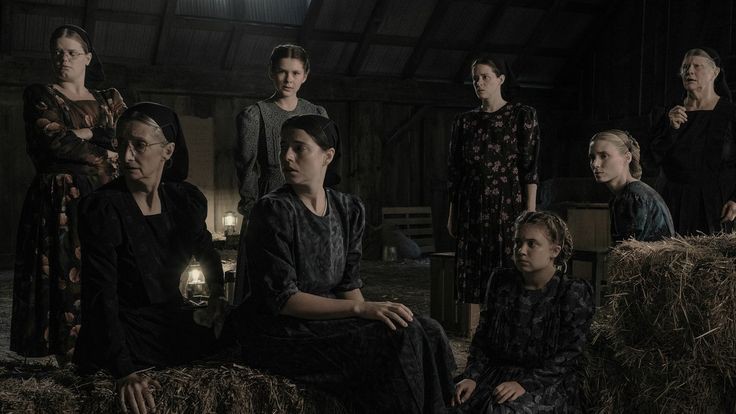
We didn’t see any violence happening throughout the movie, instead we got to see what remained afterwards. Every woman here has different ideals, some believe in forgiveness while some are ready to cause violence if their loved ones are attacked. There are also characters like Mariche who are finding it difficult to come to a conclusion. Somewhere between the habitual resignation to desire to end it all, they found themselves stuck. Mariche has been a victim of physical abuse by his husband and this movie also highlights the faults of the previous generation. In one such powerful scene, Greta (Mariche’s mother) apologizes to her daughter because in the name of faith, she always asked her to forgive her husband for his crimes.

“Why does love, absence of love, and end of love, the need for love, result in so much violence?” -Ona
Women Talking gives us a few hours to enjoy the company of these women, their dare to dream moments and their quest of getting that little space where they are allowed to think and demand safety. The film ends on the start of their journey of abandoning their forced faith and the film leaves us with a feeling of hope and optimism.
Also Read: Some unconventional movies exploring the idea of conventional adult relationships with children
For more pop-culture updates, follow us on @discultured
Entertainment
Uttarakhand Wedding Awards 2025: Celebrating the State’s Journey Towards Becoming a Premier Global Wedding Destination
Uttarakhand Wedding Awards
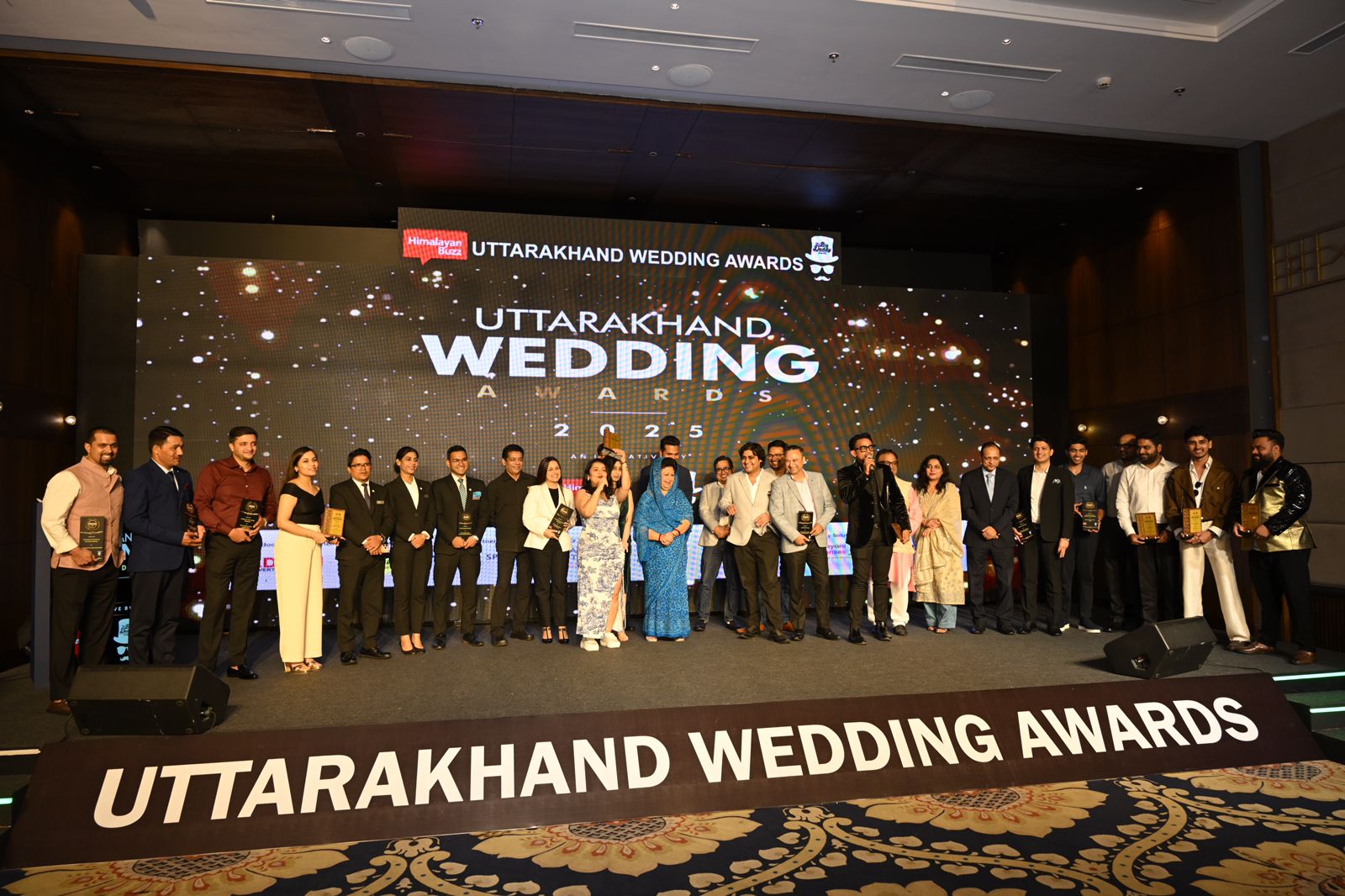
Dehradun, 14th September 2025 – The Uttarakhand Wedding Awards 2025 lit up the evening skies at Hyatt Centric, Dehradun, with a dazzling celebration of excellence, creativity, and vision in the wedding industry.
Organized by Himalayan Buzz Admedia LLP, in association with The Big Daddy Events Co., the event brought together leaders from the wedding, hospitality, and tourism sectors to recognize excellence and lay the foundation for Uttarakhand’s emergence as a world-class wedding destination.
The glittering evening featured an exclusive guest list of wedding planners, hoteliers, tourism officials, and government representatives, all working collectively towards transforming Uttarakhand into a premier hub for wedding tourism.
Dignitaries Grace the Occasion
The awards night witnessed the presence of eminent dignitaries who have been instrumental in shaping the state’s cultural and tourism landscape. The event was graced by Maharani of Tehri Garhwal and Member of Parliament, Mala Rajya Laxmi Shah, attending as the Chief Guest. Her presence added a touch of regal elegance and highlighted the importance of preserving Uttarakhand’s rich heritage while promoting it as a global wedding destination.
Accompanying her were other distinguished Guests of Honor, including Mrs. Tripti Juyal Semwal, Vice President of Maya Devi University, Mrs. Poonam Chand, Additional Director at Uttarakhand Tourism, and Shri Saurabh Thapliyal, Mayor of Dehradun. Their combined presence underscored the collaborative effort between government bodies, academia, and industry leaders to elevate Uttarakhand’s wedding tourism ecosystem.
Strategic Industry Dialogue – Vision & Mission 2030
One of the evening’s most significant highlights was a panel discussion on “Uttarakhand Wedding Vision & Mission 2030 – Building a Sustainable, Spiritual, and World-Class ‘Wed in India’ Destination.”
The panel featured some of the most prominent voices from the wedding and hospitality sectors. Esteemed panelists included Ravi Goel, Co-founder of The Big Daddy Events; Gaurav Chanana, Whistling Teel; Rishabh Panchhi, Panchhi Events; Ayu Tripathi, Director, Aahana Resort, Jim Corbett; Ajit Singh Gandhi, General Manager, Hyatt Centric Rajpur Dehradun; and Malabika Das, Director of Celebrations, Hyatt Regency Dehradun Resort and Spa.
The session was moderated by Avinash Mishra, Founder of Badmash Kebabi, ensuring a seamless exchange of ideas and perspectives.
Recognizing Excellence – Winners of Uttarakhand Wedding Awards 2025
The evening culminated in honoring outstanding individuals and organizations whose work has set new benchmarks for quality, creativity, and service in the wedding industry. From luxury resorts and planners to designers and service providers, each winner demonstrated exceptional innovation and dedication to building world-class wedding experiences in Uttarakhand.
Uttarakhand Wedding Awards 2025 – Winners
- Best Wedding Venue – Luxury Hotel – Taj Mussoorie Foothills, Dehradun
- Best Wedding Venue – 5 Star Hotel – Hyatt Regency Dehradun Resort and Spa
- Best Wedding Venue – Luxury Resort – Aahana Resort, Jim Corbett
- Best Wedding Venue – Resort – Saraca Resort & Spa, Corbett
- Best Wedding Venue – Ganges Beach – Summit by the Ganges, Rishikesh
- Best Wedding Venue – Heritage Hotel – Hotel Chevron Fairhavens, Nainital
- Best Wedding Venue – Bespoke – Hyatt Regency Dehradun Resort and Spa
- Best Wedding Venue – Mid Size – Regenta, Dehradun
- Best Wedding Venue – City – Hyatt Centric, Rajpur Road, Dehradun
- Best Wedding Venue – Midscale Destination Wedding – Pride Premier Solitaire, Dehradun
- Best Wedding Venue – Lakefront – The Lake Resort, Naukuchiatal
- Best Wedding Venue – Lawn – Qupid by Saffron Leaf
- Best Wedding Venue – Pre-Wedding Ceremonies – The Fern Brentwood Resort, Mussoorie
- Best MICE Venue – Hyatt Centric, Rajpur Road, Dehradun
- Upcoming Luxury Wedding Venue – Paatlidun Safari Lodge
- Best Wedding Venue – Riverside – Maldevta Farms, Dehradun
- Best Wedding Venue – Boutique Resort – AAR Resorts & Spa
- Best Bakery – Wedding Cakes – Ellora’s Melting Moments
- Best Wedding Photographer – Intenselovestory by Kuldeep Semwal
These winners are not only redefining the wedding landscape of Uttarakhand but also helping the state gain recognition as a leading destination for grand celebrations and luxury weddings.
Leadership Speaks
Sharing her thoughts on the event, Namrata Bhandari, Editor-in-Chief, Himalayan Buzz Magazine, stated:
“Uttarakhand is blessed with a rare combination of breathtaking landscapes and world-class hospitality. Through these awards, our aim is to spotlight the talented individuals and organizations working tirelessly to make the state a top choice for weddings and celebrations.”
Adding to this, Gauraveshwar Singh, Co-founder, Himalayan Buzz, remarked:
“The Uttarakhand Wedding Awards are not just about recognition but about building a collaborative platform that unites the wedding industry. This initiative is a step forward in positioning Uttarakhand as a global wedding hub while fostering sustainable growth and innovation.”
About Uttarakhand Wedding Awards
The Uttarakhand Wedding Awards is a flagship initiative by Himalayan Buzz Admedia LLP. The awards celebrate individuals and organizations driving growth in the wedding and events industry while promoting Uttarakhand as one of India’s most desirable wedding destinations.
With Himalayan Buzz at the forefront, the initiative focuses on fostering excellence, sustainability, and innovation, ensuring that Uttarakhand’s wedding tourism sector thrives and competes on a global stage.
Media Contact:
Himalayan Buzz Admedia LLP
📧 Email: info@himalayanbuzz.com
📞 Phone: +91-70373 99960
#UttarakhandWeddingAwards #WedInUttarakhand #UWA25
Also Read: National Food Awards 2025: A Celebration of Legacy, Labour, and Local Wisdom in Indian Food
Business
France’s Reckoning With Ultra-Fast Fashion: Why Shein Is at the Center of a Larger Conversation?

There appears to be a quiet yet undeniable shift underway in how nations are beginning to reckon with the fashion industry, particularly the segment that thrives on speed, relentless volume, and the seductive promise of impossibly low prices. In 2025, France has emerged as one of the first major economies to confront this hyper-accelerated model head-on, not merely by issuing fines or launching investigations, but by challenging the very system that enables it. At the center of this reckoning stands Shein, the Chinese retail juggernaut that has become synonymous with algorithm-driven production. Yet, what makes this moment in France especially significant is not only the legal action being taken against a single company, it is the broader cultural and ethical inquiry being posed. With growing urgency, the country seems to be asking whether we can continue to dress ourselves at this breakneck pace, cloaked in convenience and novelty, without confronting the environmental, human, and psychological costs that are too often obscured by polished interfaces.
€40 Million Fine for Misleading Practices
In July 2025, France’s Directorate General for Competition, Consumer Affairs and Fraud Control (DGCCRF), the country’s principal consumer protection authority, levied a €40 million fine against Shein, marking one of the most high-profile regulatory actions yet against a fast fashion giant. The fine followed an extensive investigation conducted between October 2022 and August 2023, which uncovered a pattern of misleading business practices at the centre of Shein’s digital storefront. More than half of the discounts promoted on its website were found to be deceptive, offering no tangible benefit to the consumer, while others relied on inflated original prices to manufacture the illusion of savings. Even more concerning to regulators were the company’s sustainability claims: bold assurances of a 25% reduction in greenhouse gas emissions and microfiber pollution were, as the DGCCRF concluded, entirely unsubstantiated and unsupported by verifiable data. Though Shein, through its European subsidiary Infinite Style Ecommerce Co Ltd (ISEL), accepted the penalty and claimed to have implemented corrective measures by May 2023, the underlying message from French authorities rang louder than any corporate statement.

Proposed Legislation Signals a Larger Shift
While the €40 million fine made headlines, it represents just one facet of the mounting scrutiny Shein now faces in France. In June 2025, the French Senate took a more structural approach by passing a groundbreaking bill that, if enacted, could fundamentally alter the way ultra-fast fashion brands operate within the country. At the centre of this proposed legislation is an eco-contribution tax. The bill also lays out stringent new requirements for sustainability reporting, alongside tough advertising regulations that aim to limit visibility for brands that fail to meet clear environmental standards. One of the most notable implications of the legislation lies in its potential to curtail influencer-led marketing strategies, a pillar of customer acquisition for companies like Shein that rely heavily on social media virality and affiliate promotions. Although advocacy groups have raised concerns about a perceived disparity in how European retailers, including Zara and H&M, are being treated under the same regulatory lens, the passage of this bill signals something deeper. It reflects a growing legislative will to confront not just the ecological toll of ultra-fast fashion, but also its broader cultural, ethical, and economic footprint, raising the question of whether the era of unchecked consumerism is nearing its limits.
The Environmental Impact Can’t Be Ignored
One of the driving forces behind the intensified scrutiny Shein now faces lies in the sheer scale of its environmental impact, an impact that reflects not only the brand’s rapid growth but also the systemic problems embedded within the ultra-fast fashion model. The fashion industry as a whole is already responsible for an estimated 10 percent of global carbon emissions, and Shein’s contribution to that figure is anything but marginal. In parallel, French authorities have flagged more than 700 Shein products for failing to adequately disclose environmental risks, particularly those related to microfiber pollution which is an increasingly urgent concern as microplastics continue to infiltrate aquatic ecosystems and public water systems. Beyond environmental violations, the company also remains entangled in serious allegations of labor abuses, including reported connections to forced labor in China’s Xinjiang region, which have only amplified the demand for a more enforceable supply chain transparency. Taken together, these issues have not only galvanized French regulators but are also prompting broader conversations across the European Union about whether the time has come to rein in the unchecked dominance of platforms that have long operated at the intersection of convenience, opacity, and cost-cutting excess.
EU Expands Regulatory Focus on Digital Fashion Platforms
The regulatory pressure mounting against Shein is no longer confined to France alone. The company is now being closely scrutinized at the European level, where its practices are being examined under the framework of the European Union’s Digital Services Act (DSA). In July, French Trade Minister Véronique Louwagie confirmed that formal investigations had been initiated to determine whether Shein is deploying so-called “dark patterns”. These tactics, while not always illegal, are increasingly seen as ethically questionable, especially when used at the scale and speed that Shein commands. The European Commission has already expressed concern over misleading pricing strategies and a general lack of transparency in the platform’s operations, signaling that the company may soon face regulatory consequences that extend well beyond French jurisdiction. What initially began as a case rooted in consumer rights has turned into a far-reaching conversation about digital ethics, platform accountability, and the environmental consequences of unchecked e-commerce, placing Shein at the center of a growing movement to hold digital-first fashion retailers to a higher standard of responsibility.
The Reaction: Divided but Loud
The public reaction to France’s regulatory moves against Shein has been swift, impassioned, and divided, reflecting the complexity of the issues at hand. Many people have welcomed the measures as a long-overdue reckoning for a fashion industry that has long operated in the shadows of overproduction, exploitative labor practices, and environmentally damaging shortcuts. For these voices, the crackdown represents a necessary step toward holding global retailers accountable for the true cost of low-cost fashion. Yet, not everyone sees it that way. Critics of the legislation have expressed concern that such regulations could disproportionately affect low-income consumers, many of whom turn to platforms like Shein for affordable access to clothing and personal expression. Through this lens, Shein can attempt to shift the conversation toward themes of economic inclusion and consumer freedom, portraying itself as a platform that democratizes fashion rather than undermines it. At its core, the debate is about far more than a single company. It is a larger tug-of-war between the urgent need for accountability and the equally pressing question of affordability.
Why This Matters
France’s actions in 2025 are not merely a response to the conduct of a single company but represent a deeper interrogation of the values, compromises, and contradictions that lie at the heart of the global fashion industry. When a country with as much cultural and political influence as France begins to layer financial penalties, proposed eco-taxes, advertising restrictions, and cross-border regulatory cooperation into a cohesive strategy, it signals more than just regulatory intent. It marks the beginning of a broader shift in how we understand fashion’s role in society. The question now is whether brands like Shein will evolve in response to this changing situation or attempt to maintain their dominance through speed, affordability, and mass appeal alone. Just as importantly, it remains to be seen how consumers will react when asked to look beyond the immediate gratification of the checkout page and confront the realities of where, how, and at what cost their garments are made. France may not bring the era of ultra-fast fashion to a halt overnight. But it may well be laying the groundwork for something more enduring.
Also Read: Your Wardrobe Might Be Reflecting a Recession
Follow us for more : Dis_cultured
Events
The Most Memorable Highlights from the 2025 Academy Awards
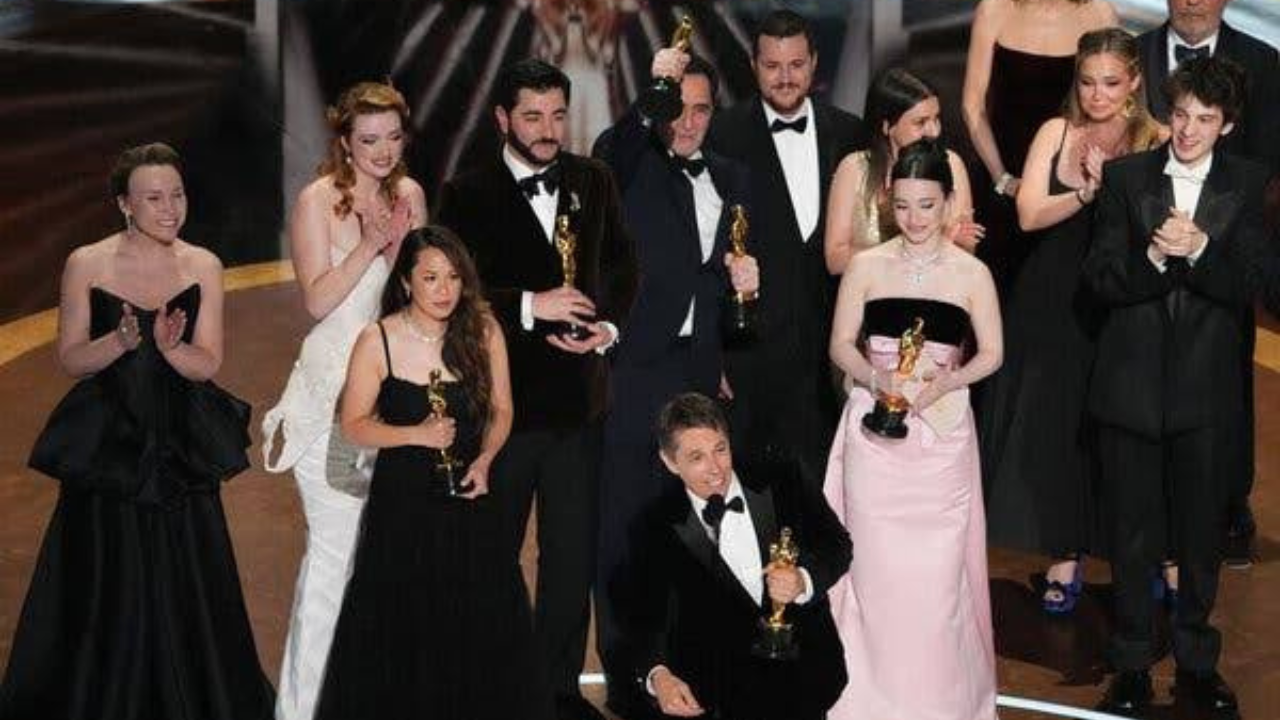
Surprises, Stunning Wins, and Emotional Tributes – The 2025 Oscars Had It All. Catch Up with All the Highlights.
The 2025 Academy Awards, held on March 2 at the Dolby Theatre in Hollywood, was a night of triumphs and surprises that had the attention of audiences worldwide. Hosted by Conan O’Brien, the event was lively, full of humor, and celebrated the diversity and creativity of cinema from all around the world. This year’s ceremony stood out for its focus on inclusivity and representation, highlighting the growing diversity and global reach of the film industry. It was also about recognizing talent and stories from across the globe, signaling a shift in how the Academy values the changing trends in filmmaking.
Historic Wins for Anora
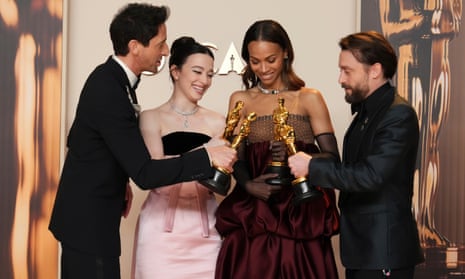
The evening’s biggest winner was undoubtedly Anora, an indie film that took home five Oscars, including the coveted Best Picture. Sean Baker’s direction was celebrated with a Best Director win, making him only the second person in history to win four individual Oscars in a single night, joining the ranks of Walt Disney. But the film’s success didn’t end there—Mikey Madison, portraying a sex worker entangled with a Russian oligarch’s son, secured Best Actress. At just 25, Madison made history as the ninth youngest actress to win the prestigious award. The triumph of Anora was a testament to its sweeping storytelling, captivating performances, and fresh perspective in filmmaking.
Zoë Saldaña and Paul Tazewell Breaking Barriers
The night also saw a series of groundbreaking wins that reflected Hollywood’s ongoing push for inclusivity and diversity. Zoë Saldaña made history as the first American of Dominican descent to win Best Supporting Actress for her role in Emilia Pérez. Saldaña’s win was not only a recognition of her immense talent but also an important milestone for the representation of marginalized voices in the film industry.
Meanwhile, Paul Tazewell took home Best Costume Design for his work on Wicked. Tazewell became the first Black man to ever win in this category, making a significant mark on the history of the Academy Awards.
Adrien Brody’s Second Oscar Win

Another highlight of the evening was Adrien Brody, who secured Best Actor for his performance in The Brutalist. Brody’s win, marking his second Oscar, was well-deserved after delivering a deeply compelling and nuanced performance. His emotional portrayal in the film left a lasting impact on both critics and audiences, making his victory one of the night’s most celebrated moments in the acting categories.
A Heartfelt Musical Tribute by Ariana Grande and Cynthia Erivo

The musical performances were another standout feature of the night. Ariana Grande and Cynthia Erivo took the stage for a touching tribute to Los Angeles, which was recovering from the devastating wildfires. Their renditions of Somewhere Over the Rainbow and Defying Gravity left the audience in awe, showcasing the emotional power of music and its ability to unite and heal. It was a heartfelt moment that reminded everyone of the strength of the city and the spirit of resilience.
Adam Sandler’s Quirky Fashion Moment

In true Oscar tradition, the night wasn’t without its lighthearted moments. Adam Sandler became the talk of social media when he showed up to the ceremony in gym shorts. Conan O’Brien couldn’t resist poking fun at Sandler’s unconventional choice, adding humor to the event. The quirky fashion moment quickly became a viral topic, sparking discussions about casual red carpet looks and how even the most unexpected outfits can become part of the Oscar narrative.
Controversies and Unexpected Upsets
Not everything went smoothly, though. The night also saw some controversies that added an extra layer of drama to the proceedings. One of the most talked-about moments occurred when Iranian co-director Hossein Molayemi interrupted his partner, Shirin Sohani, during their acceptance speech for Best Animated Short Film for In the Shadow of the Cypress. Molayemi’s actions were met with backlash on social media, with many criticizing him for overshadowing Sohani’s moment. The ceremony also saw a surprising upset in the Best Actress category when Demi Moore, who was widely favored to win for her role in The Substance, lost out to Mikey Madison. This unexpected loss left many questioning the voting choices and added to the evening’s fair share of shocking moments.
Despite the controversies, the 2025 Oscars will undoubtedly be remembered as a night that reflected both the changing tides of the industry and the enduring power of film.
Also Read: Weekly Pop Culture Recap: Microsoft to discontinue Skype by May, Best Highlights from the Milan Fashion Week
Follow us for more @Discultured
-

 Events12 months ago
Events12 months agoThe Most Memorable Highlights from the 2025 Academy Awards
-

 Events10 months ago
Events10 months agoWhat Indian Celebrities Wore to the Met Gala 2025
-

 Fashion10 months ago
Fashion10 months agoYour Wardrobe Might Be Reflecting a Recession
-

 Events9 months ago
Events9 months agoThe Biggest Moments for Indian Cinema at Cannes 2025 That Had Everyone Talking
-

 Fashion12 months ago
Fashion12 months agoWeekly Pop Culture Recap: Donatella Versace has resigned as Versace’s Chief Creative Officer, BLACKPINK’s Lisa is branching out with her graphic novel, ALTER-EGO.
-

 Fashion10 months ago
Fashion10 months agoDupatta Labeled as European Aesthetic is a Case of Cultural Erasure
-

 Events12 months ago
Events12 months agoWeekly Pop-Culture Recap: Louis Vuitton to Launch Its Own Makeup Line Led by Pat McGrath, TikTok Expands Into Local Services to Boost Small Business Engagement.
-
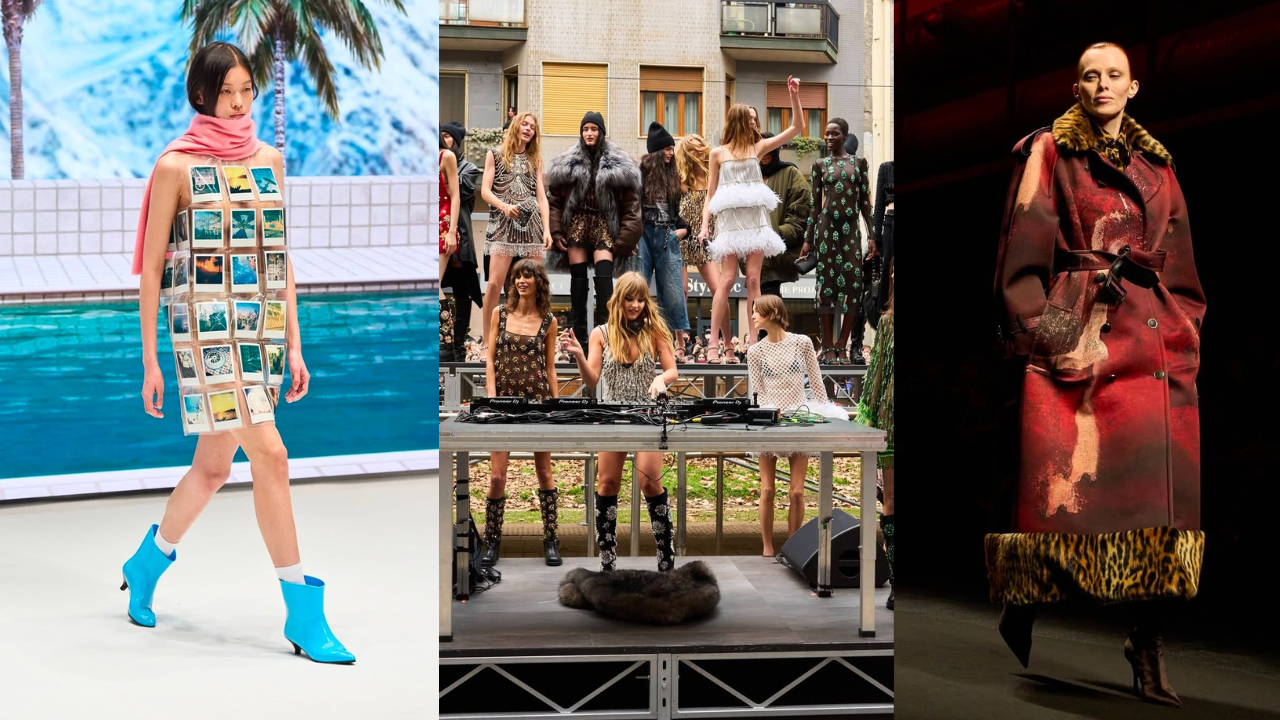
 Events12 months ago
Events12 months agoMilan Fashion Week 2025: The Biggest Highlights and Trends










Pingback: 5 Reasons Why You Should Watch "The Last Of Us." - Discultured
Pingback: Social Media influencers, Soha Ali, Vidhya A. Thakkar and Anushka Hazra shared about their inspiration on women’s day. - Discultured
avenue
07.01.2024 at 12:20 am
It to you a science.